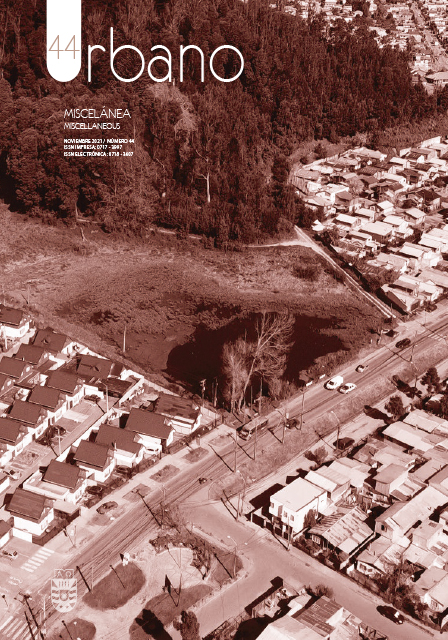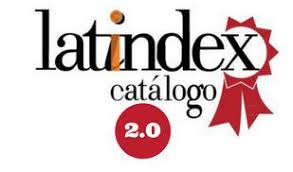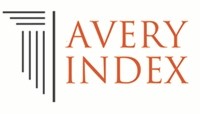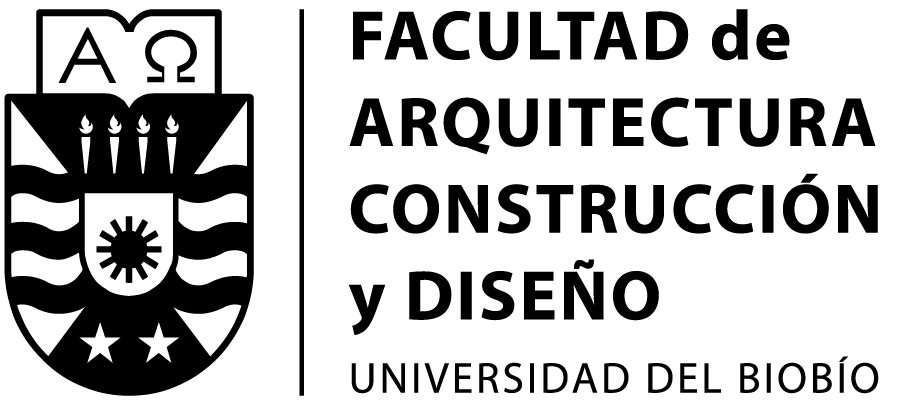Community Governance tensions of rural drinking water utilities in periurban territories (Chile)
DOI:
https://doi.org/10.22320/07183607.2021.24.44.09Keywords:
Territory, governance, drinking water, rural water sanitation services, Law 20,998Abstract
Unlike the private concession model applied in urban zones, rural water sanitation services in Chile are managed by rural drinking water (RDW) committees or cooperatives, under a community governance model. This article seeks to understand the tensions and conflicts faced by RDW community governance in the peri-urban territories of regional capitals, which are at the frontier of the private drinking water management model. Based on a political ecology and hybrid governance approach, this research proposes the hypothesis that, on facing urban expansion and water scarcity, the neoliberal institutional framework tends to favour drinking water market governance in peri-urban territories. With this aim, and through semi-structured interviews and participatory observation, focusing on three RDW cases located in the peri-urban zone of Talca, this study develops a critical discourse analysis of community managers and government regulators, identifying their perceptions and positions on current socio-ecological transformations, and community governance tensions. Consistent with the proposed hypothesis, from discourse analysis, it is possible to infer the potential risks of privatization, derived from the implementation of Law No. 20,998, which regulates rural water sanitation services.
Downloads
References
ÁVILA-GARCÍA, P. (2016). Hacia una ecología política del agua en Latinoamérica. Revista de Estudios Sociales, (55), 18-31.
ÁVILA SÁNCHEZ, H. (2009). Periurbanización y espacios rurales en la periferia de las ciudades. Estudios Agrarios, 15(41), 93-123.
BAUER, C. (2015). Water conflicts and entrenched governance problems in Chile’s market model. Water Alternatives, 8(2), 147-172.
BECK, U. (2002). La sociedad del riesgo global. Madrid: Siglo XXI.
BOELENS, R., HOOGESTEGER, J., SWYNGEDOUW, E., VOS, J. Y WESTER, P. (2016). Hydrosocial territories: A political ecology perspective. Water International, 41(1), 1-14. DOI: https://doi.org/10.1080/02508060.2016.1134898
CASTORIADIS, C. (1975). La institucion imaginaria de la sociedad. Madrid: Tusquets Editores.
CERRILLO I MARTÍNEZ, A. (Coord.) (2005). La gobernanza hoy: 10 textos de referencia. Madrid: Instituto Nacional de la Administración Pública.
DUPUITS, E. (2014). Construire une norme transnationale en réseau: Gestion communautaire de l’eau et «associativité» en Amérique Latine. Revue Interdisciplinaire de Travaux sur les Amériques, 7, 1-15.
FAIRCLOUGH, N. (2013). Language and Power. London: Routledge.
FUSTER, R., JARA, P., VIDAL, K. Y ABELLÁ, F. (2016). Estado del arte y desafíos de los Servicios Sanitarios Rurales. Laboratorio de Análisis Territorial (LAT) de la Universidad de Chile con fondos de Asociación Nacional de Empresas de Servicios Sanitarios A.G. (ANDESS A.G.).
HERNÁNDEZ SAMPIERI, R., FERNÁNDEZ COLLADO, C. Y BAPTISTA LUCIO, P. (2003). Metodología de la investigación. México: McGraw-Hill.
KOOIMAN, J. (2005). Gobernar en gobernanza. En A. Cerrillo i Martínez (Coord.), La gobernanza hoy: 10 textos de referencia (pp. 57-82). Madrid: Instituto Nacional de la Administración Pública.
LARRAÍN, S. Y POO, P. (Eds.). (2010). Conflictos por el agua en Chile. Entre los derechos humanos y las leyes del mercado. Programa Chile Sustentable.
LEFF, E. (2003). La ecología política en América Latina. Un campo en construcción. POLIS, Revista Latinoamericana, 1(5). DOI: http://dx.doi.org/10.32735/S0718-6568/2003-N5-225
MANGANELLI, A., VAN DEN BROECK, P. Y MOULAERT, F. (2020). Socio-political dynamics of alternative food networks: A hybrid governance approach. Territory, Politics, Governance, 8(3), 299-318. DOI: https://doi.org/10.1080/21622671.2019.1581081
MATURANA MIRANDA, F. (2017). ¿Ausencia de planificación urbana en Chile? Algunas reflexiones. Cybergeo: European Journal of Geography. Recuperado de http://journals.openedition.org/cybergeo/28064
NEIL, B. (2013). Tesis sobre la urbanización planetaria. Nueva Sociedad, (243), 38-66.
NICOLAS-ARTERO, C. (2016). Las organizaciones comunitarias de agua potable rural en América Latina: Un ejemplo de economía substantiva. Polis (Santiago), 15(45), 165-189. DOI: https://doi.org/10.4067/S0718-65682016000300009
PLADECO (2017). Plan de Desarrollo Comunal 2017-2020. Municipalidad de Talca.
PORTO-GONÇALVES, C. W. (2009). Del desarrollo a la autonomía: La reinvención de los territorios. América Latina en Movimiento, 445, 10-13. Recuperado de https://www.alainet.org/sites/default/files/alai445w.pdf
RODRÍGUEZ GÓMEZ, G., GIL FLORES, J. Y GARCÍA JIMÉNEZ, E. (1996). Metodología de la investigación cualitativa. Málaga: Aljibe.
SALDOMANDO, A. (2009). Evaluación institucional y Gobernanza: Chile apariencias y realidades. Bogotá: Instituto de Investigación y Debate sobre Gobernanza. Recuperado de http://www.institut-gouvernance.org/docs/evaluacion-institucional_.pdf
SANTOS PRECIADO, J. M. (2020). Sistema de información geográfica. Madrid: Editorial UNED.
SWYNGEDOUW, E. Y JESSOP, B. (2006). Regulation, Reproduction, and Governance: Achilles’Heel of Development. Demologos. Recuperado de http://demologos.ncl.ac.uk/wp/wp2/papers/TSP3.pdf
SWYNGEDOUW, E., KAÏKA, M. Y CASTRO, J. E. (2016). Agua urbana: Una perspectiva ecológico-política. En Castro, J.E. (Ed.). La ecología política del agua urbana: contribuciones conceptuales y empíricas (pp. 11-35). Cuadernos de Trabajo de la Red Waterlat-Gobacit, Serie Áreas Temáticas – AT3 SATCUASPE, El Ciclo Urbano del Agua y los Servicios Públicos Esenciales, Cuaderno Vol. 3, N° 7. Newcastle Upon Tyne, Reino Unido y Buenos Aires, Argentina. Recuperado de http://waterlat.org/WPapers/WPSATCUASPE37.pdf
VILLARROEL NOVOA, C. (2012). Asociaciones comunitarias de agua potable rural en Chile. Diagnóstico y desafíos. Santiago de Chile: Programa Chile Sustentable.
ZURBRIGGEN, C. (2014). Políticas latinoamericanas en la gestión del agua: De la gobernanza neoliberal a una gobernanza pública. Agua y territorio, 3, 89-99.
Downloads
Published
How to Cite
Issue
Section
License
Copyright (c) 2021 Eduardo Antonio Letelier Araya

This work is licensed under a Creative Commons Attribution-ShareAlike 4.0 International License.
The content of articles which are published in each edition of Habitat Sustentable, is the exclusive responsibility of the author(s) and does not necessarily represent the thinking or compromise the opinion of University of the Bio-Bio.
The author(s) conserve their copyright and guarantee to the journal, the right of first publication of their work. This will simultaneously be subject to the Creative Commons Recognition License CC BY-SA, which allows others to share-copy, transform or create new materials from this work for non-commercial purposes, as long as they recognize authorship and the first publication in this journal, and its new creations are under a license with the same terms.![]()























